KABUL, Afghanistan - Afghan police schooling continues in northern Afghanistan but not without its unique concerns that need addressing by the top training leaders in NATO.
Command Sgt. Maj. David J. Vincent conducted a three-day "Battlefield Circulation" at training sites in Konduz and Sherbeghan to assess the status of Afghans training to become civil order police and border police respectively. He was out and about April 9-11 to see how progress is coming regarding the training and living conditions for new police recruits and for the coalition forces instructing them.
Vincent is the command sergeant major for Deputy Commander-Regional Support headquartered at Camp Eggers in Kabul.
The Regional Support Command-North is one of six RSCs throughout Afghanistan. The RSCs serve to facilitate contracting, training, and construction to support the International Security Assistance Force in Afghanistan.
He was assisted by Sgt. Maj. William Robinson, the new RSC-North sergeant major who recently arrived at its headquarters at Camp Spann near Mazar-e Sharif.
Arriving in the afternoon, Vincent and Robinson first went to the Regional Training Center-Konduz. This center is German operated and is an outpost in north-central Afghanistan.
Greeting them were site Command Sgt. Maj. Uwe Siegener and Lt. Col. Bernd Brock, site deputy commander. The site commander is Lt. Col. Klaus Berlin.
This training center focuses on turning Afghan recruits into members of the Afghan National Civil Order Police or ANCOP. The mission of ANCOP is to provide civil order presence patrols, prevent violent public incidents, and provide crisis and anti-terror response in urban and metropolitan environments.
The recruits first go through a four-week literacy course, six weeks of basic ANCOP training, and eight more weeks of advanced training before graduating into their first assignment. As of now, there are 331 students in training.
Even after the basic ANCOP training, students will continue to receive two hours daily in literacy training, Brock said.
"If you can't read and interpret the laws, how can you enforce the laws," Vincent rhetorically asked on the importance of literacy training.
"Some of the students are just coming out of the mountains," Siegener said as he and Brock were giving a site tour to Vincent and Robinson. They've never seen a television or lights, he said. Training "starts with lessons of hygiene," he said.
Indoor classroom training is broken down to 36 students. Each student has a notebook, pencil and eraser.
The big news at RTC-Konduz, compound leadership briefed, was an "expansion" area would be opening up in several weeks located on the other side of the west wall. The expansion will allow an additional 400 students per cycle.
This new compound will complement the existing site but with new student barracks, classrooms with larger erase boards with padded chairs with armrests, instructor living quarters, an 8,000 gallon water tank and two electric generators each capable of producing 400 kilowatts of power, and a 50,000-liter diesel fuel tank which will in part be used to produce hot water.
While the existing RTC-Konduz is very neat and clean, the new compound looks even better.
A walk around reveals fairly young trees planted around the compound to "make it green," Siegener said of a Ministry of Interior directive.
Even Vincent expressed the appearance of the site during an early-morning formation consisting of U.S. Marines and German soldiers in the "courtyard" flying the American flag. Vincent told the troops the "cleanliness" and "efficiency" of the compound was the best he has seen in of any training centers in Afghanistan and their mission pride was very evident.
That was a huge compliment considering how many training sites Vincent has visited during his travels throughout Afghanistan.
During the two-day visit at RTC-Konduz, Vincent and Robinson observed literacy training, traffic laws and control and weapons training on a Romanian AK-47.
Also observed and discussed were new supplies that came in that needed to be inventoried by both the coalition forces and the Afghan police personnel and then stored in conexes.
Also discussed was the issue of some Afghan instructors showing up late for class and some periodically not showing up at all. Both Brock and Siegener said this is a problem in the Afghan culture and sets a bad example for the students.
Yet, teachers sign an agreement relating to their duties and responsibilities and receive weekly written evaluations.
"These instructors need to have accountability," Vincent told Brock. Brock added the current remedy is to place a different instructor temporarily when unexcused absences occur.
During a meeting with Robinson in the afternoon of the second day, Vincent explained the issues he has seen during his site visits to Robinson, the new RSC-North sergeant major.
"Logistics really drives these schools," he said. The schools, he said, need supplies in a timely manner, meaning winter supplies need to show up before winter, not in the spring. However, as often is in the case, "You get supplies when they show up."
Vincent explained that there are Ministry of Interior forms to request supplies and to distribute them. The Afghan National Security Forces are getting better at using them, he said.
"We don't have control over everything, but our fingers are in everything," Vincent said of DCM-RS.
Vincent said the best way to help regarding logistics and supplies is to ask the Afghans if they have worked it (supply requests) through their system' Then, he tells them he will check into it on the NATO side and they need to follow-up on their side.
"They need to work their system to build confidence in it," he said.
During the last day of his site inspections, Vincent and Robinson walked the grounds of RTC-Sherbeghan located in northwest area of Afghanistan.
This RTC is quite small - about three to four acres -- but whose mission is critical to the success of allowing the Afghans take the lead in their security. Here is where recruits are taught border patrol tactics and policies in six weeks with a maximum of 300 students per cycle.
Other related courses are taught here like the Afghanistan Advanced Border Management Academy.
The site manager is Gerald Peil, of U.S. Training Center, whose organization is headquartered Moyock, N.C.
USTC has personnel at the site who are contracted to assist in training Afghan Border Patrol.USTC offers training experiences for military, security and law enforcement professionals in a wide range of missions, terrain and tactical situations, its website stated.
"We're the only FOB [Forward Operating Base] like this" in Afghanistan, Peil said, meaning that some of the training actually takes places outside the compound up to 15 miles away because of the small size of the site.
Also going on was "Train the Trainer" course or T3 as it is called, in taking the best graduate of the border patrol class noncommissioned officer course and putting them through a course to serve as an instructor versus sending them out to a BP assignment. It's a five-week course and is viewed by NATO as a winning ticket to spread knowledge and professionalism throughout the ranks.
Vincent and Robinson got to meet this class of 12 future instructors who would be certified in a few days. The two senior enlisted Soldiers toured their barracks and shook hands with each instructor-to-be in a hallway discussion.
The first sergeant in the Afghan instructors group received a coin of excellence from Vincent which put a big smile on the Afghan leader's face.
There is also a small band of U.S. Soldiers from Fort Campbell serving a one-year tour at RTC-Sherbeghan as a Forward Operating Detachment. The Soldiers are from Company B, 2nd Battalion-44th Air Defense Artillery Regiment, 101st Sustainment Brigade, 18th Airborne Corps.
In July 2010, the battalion deployed to Afghanistan in support of the NATO-led International Stabilization and Assistance Force (ISAF), with the mission of training and mentoring Afghan National Army and Police elements under the NATO Training Mission-Afghanistan.
The Soldiers also got some facetime with Vincent and Robinson while giving them a tour RTC and afterward in a break area.
A variety of topics were covered concerning training, morale, and person-specific concerns.
Regarding training, Sgt. Raymond Smith said this of some Afghans hoarding supplies: "To them it's power, control ... it's like pulling teeth" sometimes to get supplies.
Additionally, he said they received 1,200 extra-large raincoats. Because the Afghans aren't that large, the raincoats did not fill the bill.
The Soldiers explained they fulfill a variety of missions besides training.
For example, 1st Lt. George Bailey, working with local officials, was able to get electricity to the airfield for the first time in 15 years.
Another mission they're working on is to obtain a tent so a local orphanage can have a place to eat.
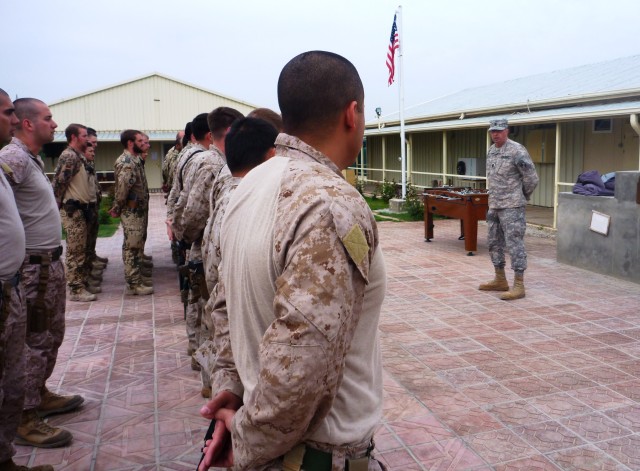
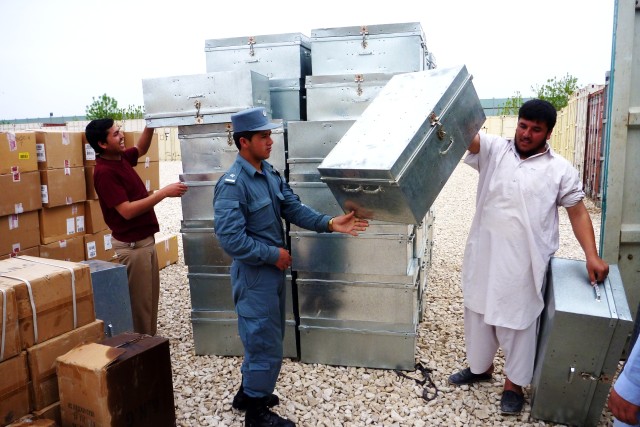
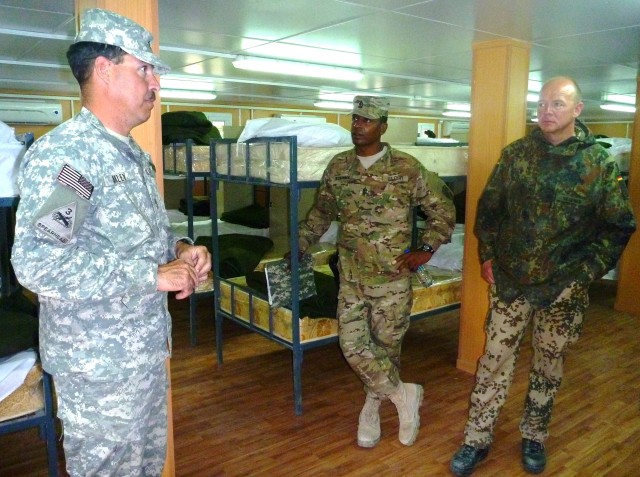
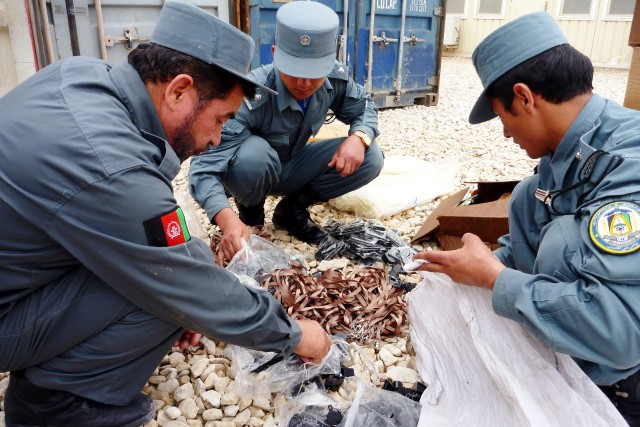
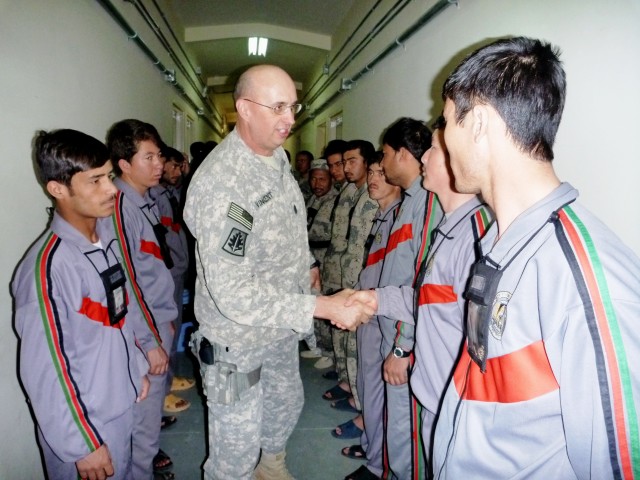
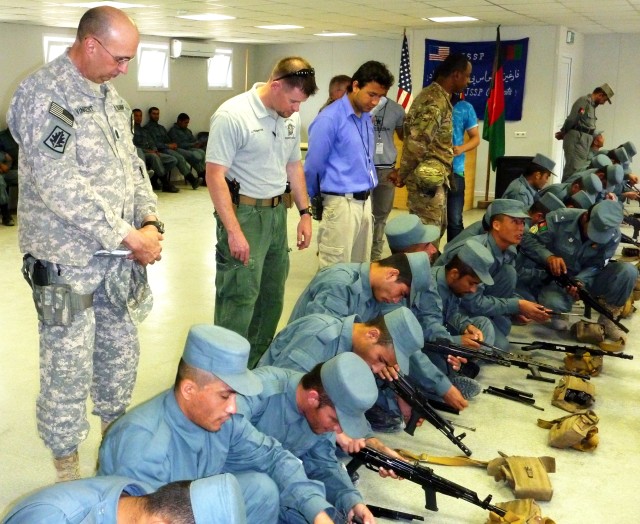
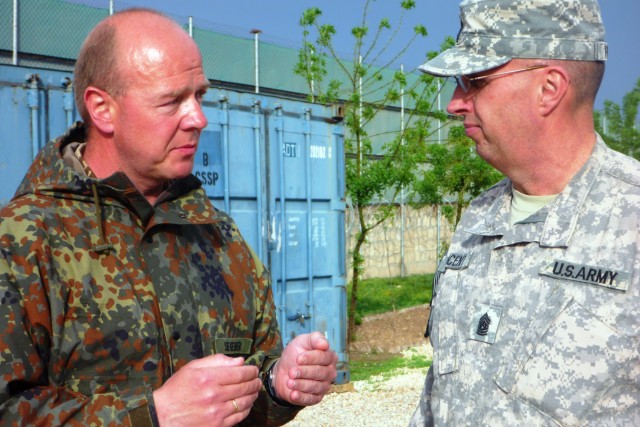
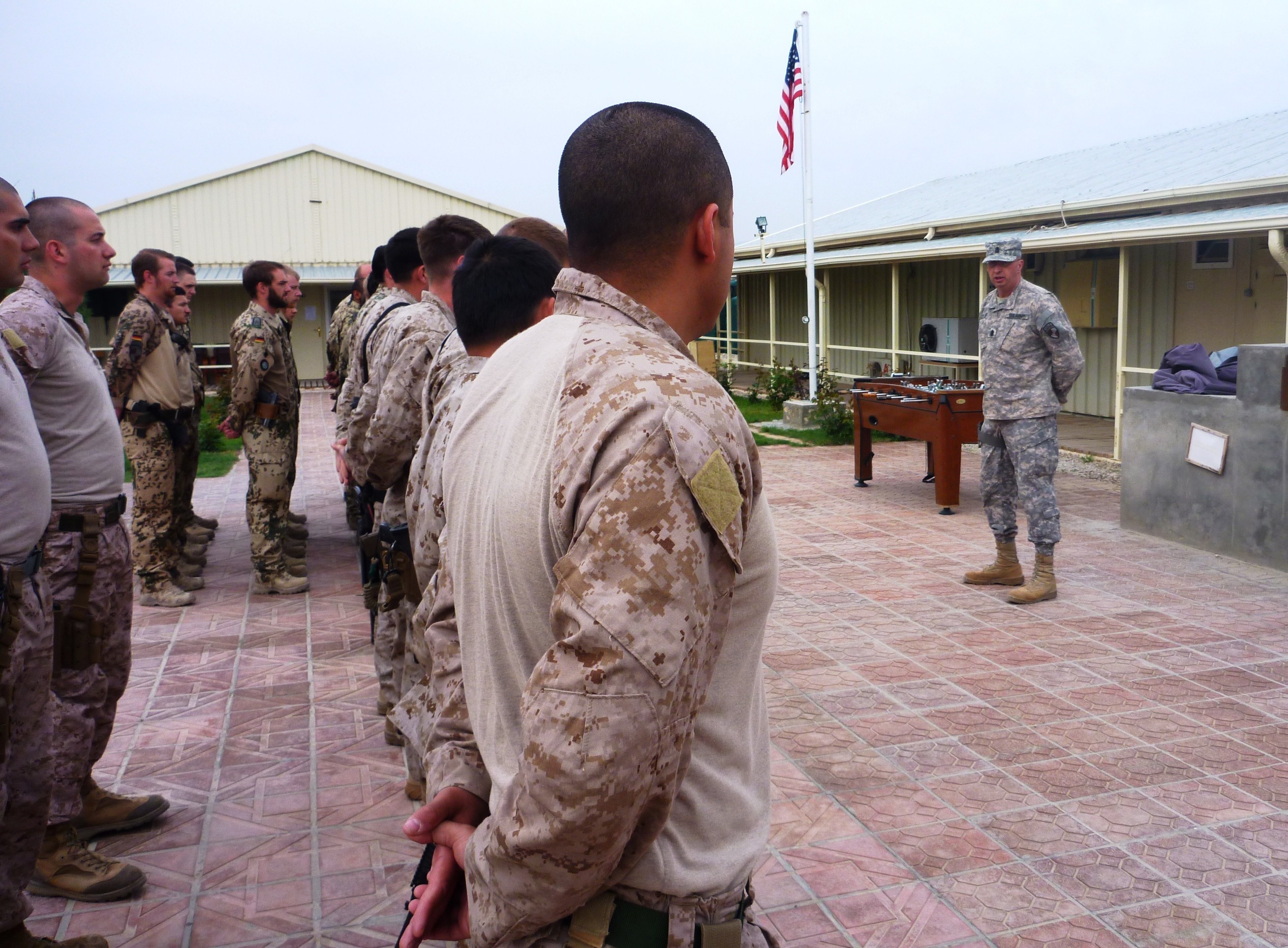
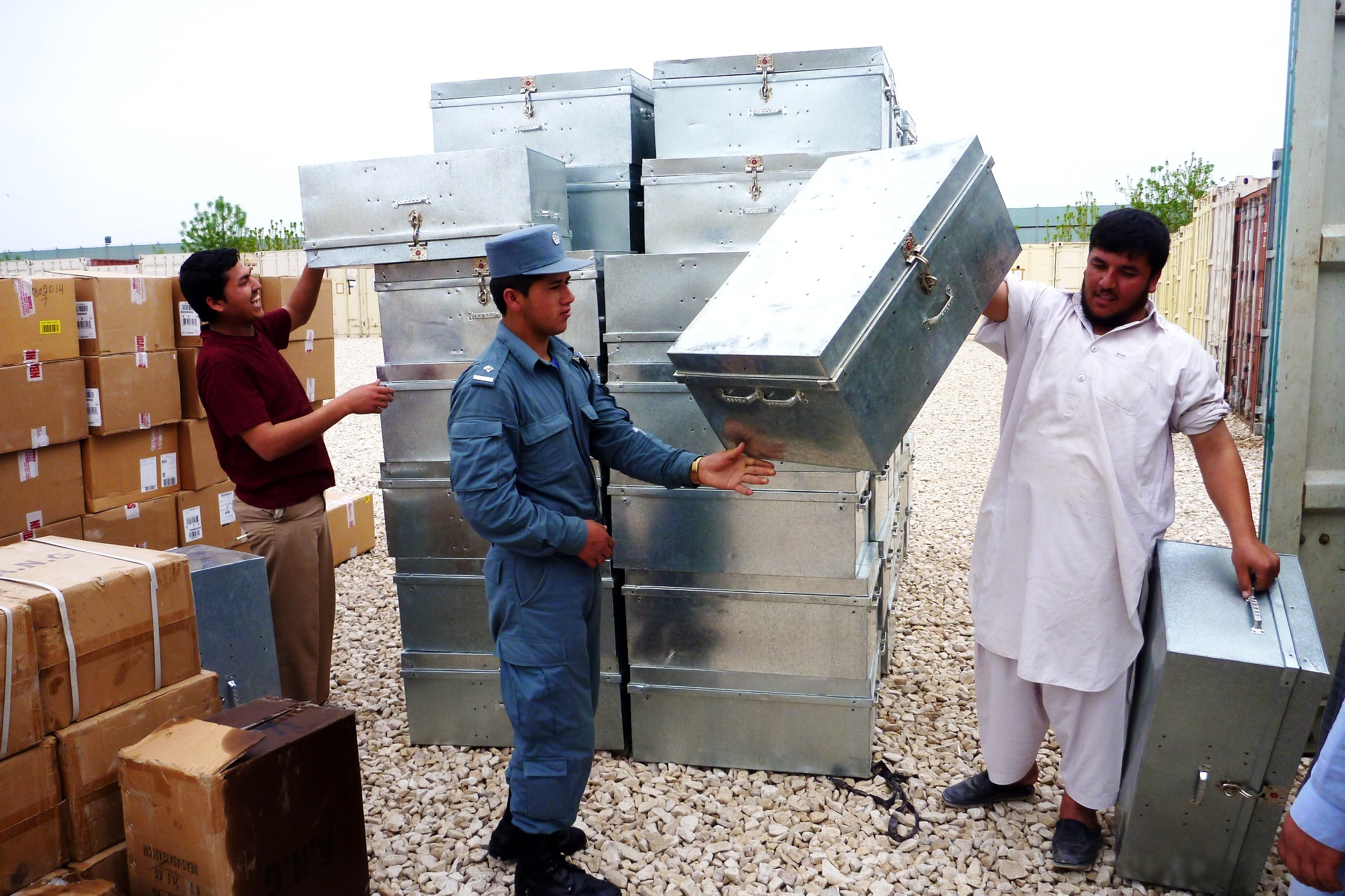

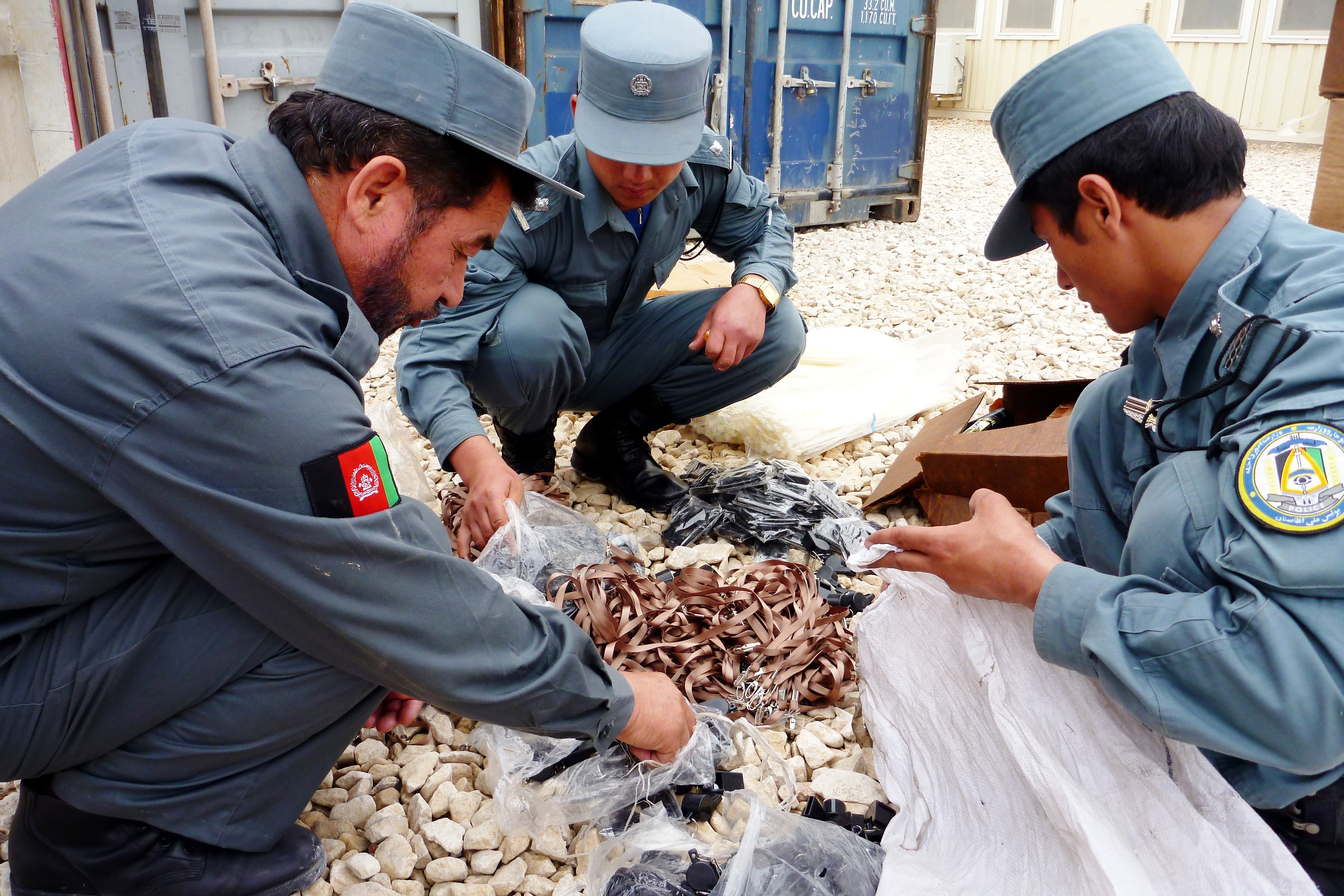
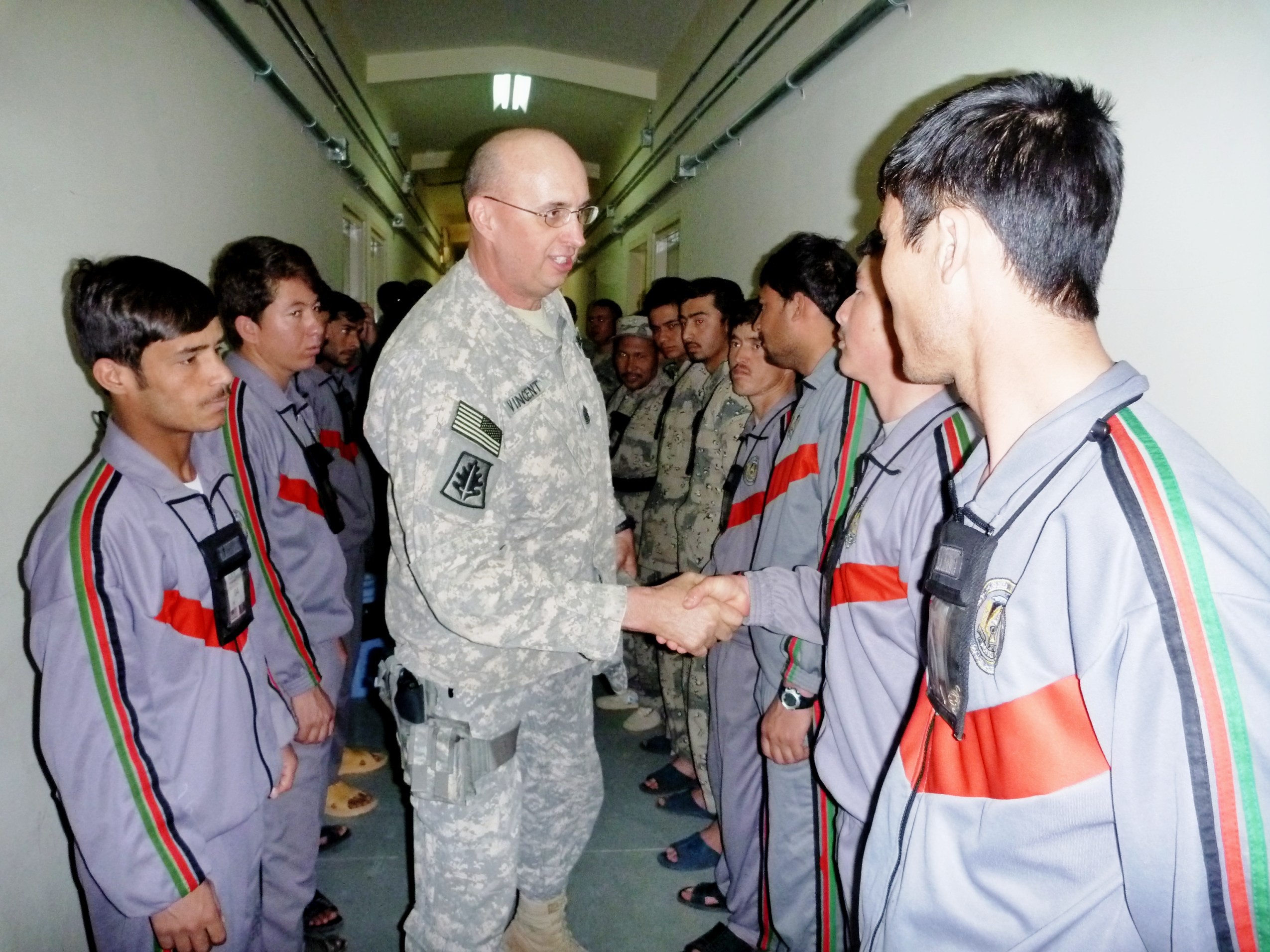
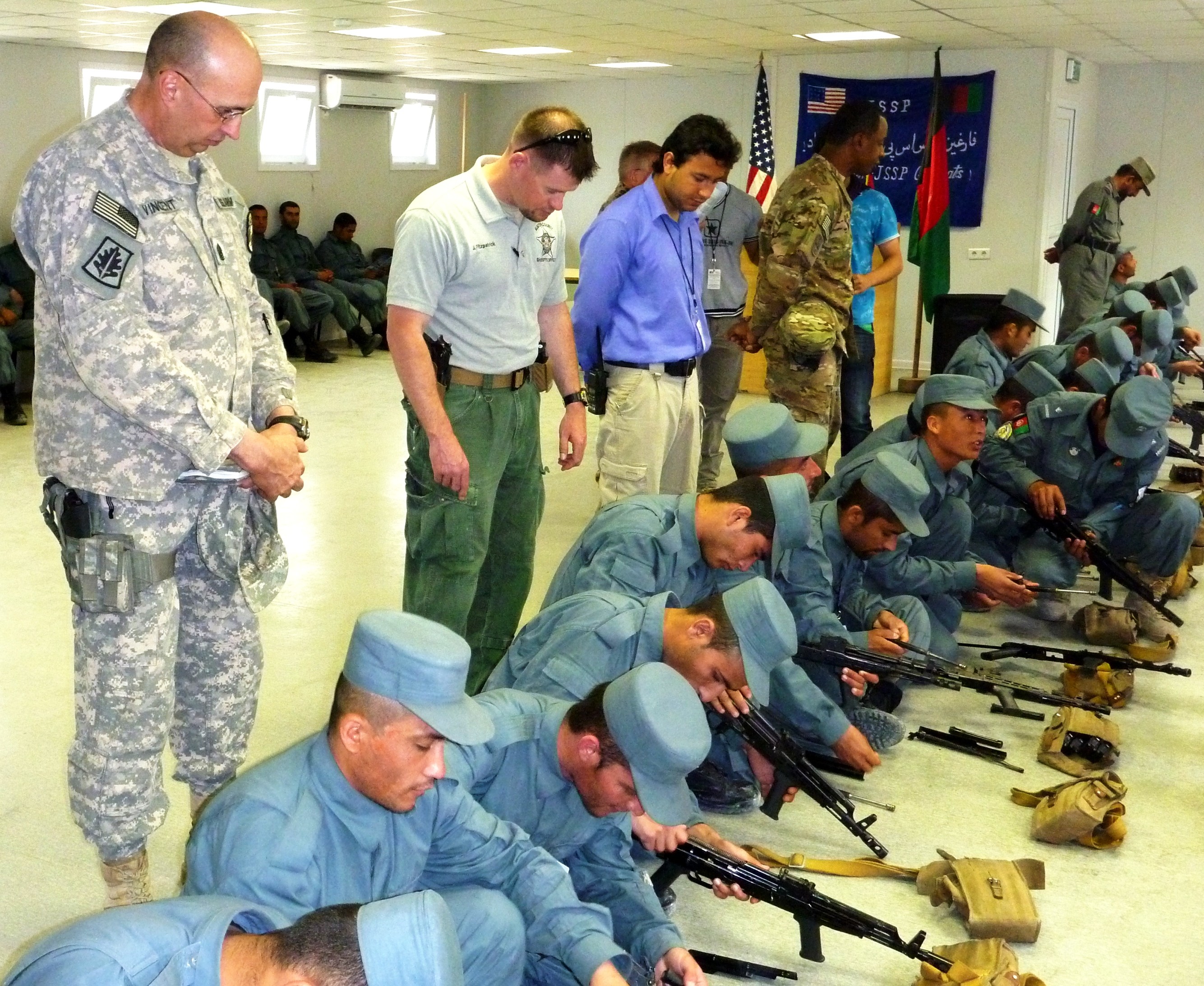
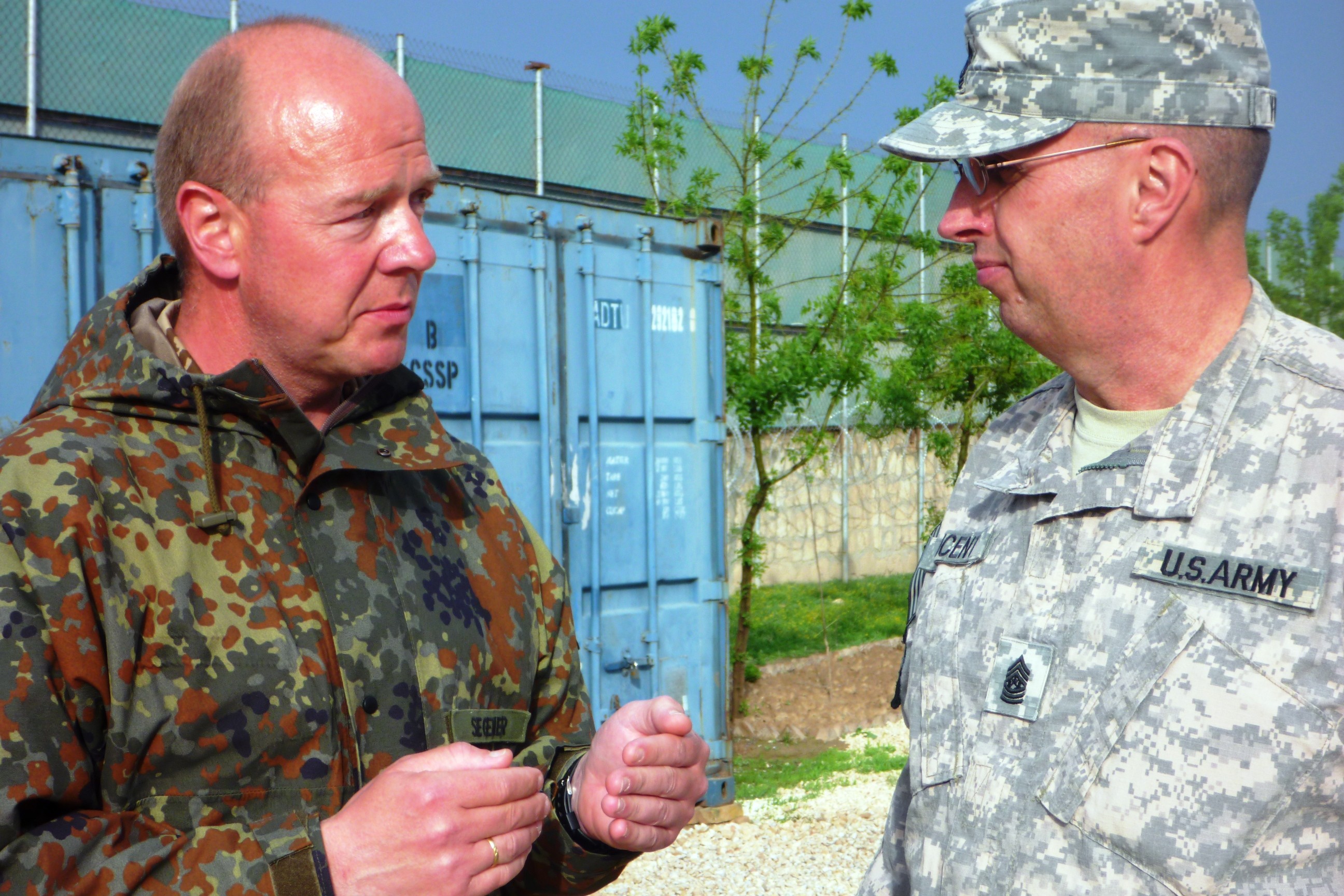
Social Sharing